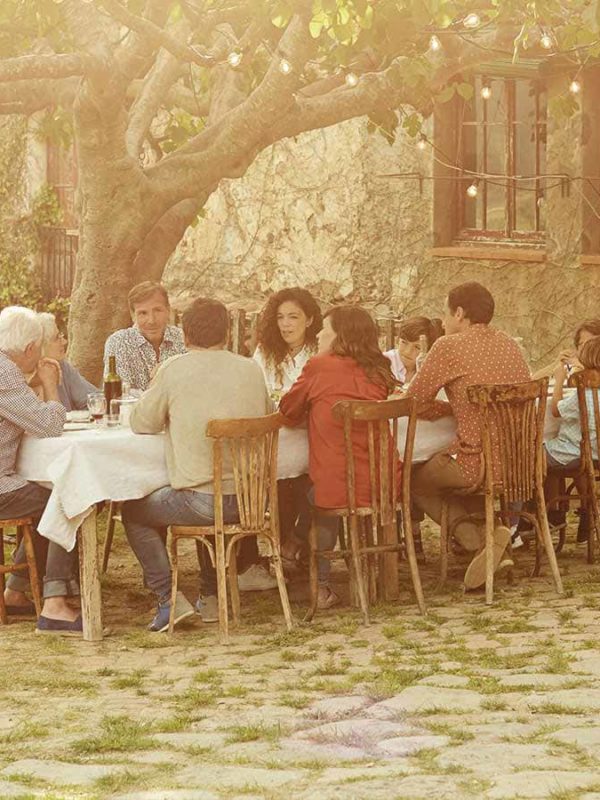Each love is a great story, but more importantly, it is “your story.” We might live our lives listening to love stories without ever realizing that it is up to us to embed love as the “thread” between the sequence of events and cycles we participate in as a family. It is up to us to bring unity and meaning, or dissonance or absurdity.
Text
“The Bible is full of families, births, love stories, and family crises. This is true from its very first page, with the appearance of Adam and Eve’s family with all its burden of violence but also its enduring strength (cf. Gen 4), to its very last page, where we behold the wedding feast of the Bride and the Lamb (Rev 21:2, 9). Jesus’ description of the two houses, one built on rock and the other on sand (cf. Mt 7:24-27), symbolizes any number of family situations shaped by the exercise of their members’ freedom, for, as the poet says, “every home is a lampstand” (The Joy of Love, n.8)
Commentary
It is a grave error to associate love with a mere sentiment that ends just as easily as it starts because we risk remaining stuck in emotion and passion.
Instead, it is extraordinary to understand in reading the Bible how all love, beginning with the Love of the Trinitarian God, contains an incomparable and not always perfect story that asks to be fulfilled, to unfold because true love carries within a story meant to be lived. Through the power that freedom confers to those who love each other, each story constitutes a first; it is opened to an incomparable novelty to beget its own tale and turn it into a vital narrative. Moreover, beyond our will, it will constitute a story that can be told to others: our children and grandchildren, for them to witness and comment on, that can enlighten them positively or not.
With the highs and lows of its multiple and diverse bonds of love, every family is a storybook, a tale that contains other tales. Thus, all families have traditions and legends of their generations that will continually remind us of our roots and their fruits. Our existence is not a coincidence; we are the product, with its pluses and minuses, of people who loved us: fathers, mothers, grandfathers, grandmothers, uncles, aunts, and cousins. Of some, we can already say that they loved us till death. In addition, we will extend and widen our family, with sons, daughters, grandsons, granddaughters—what responsibility and commitment of affection weigh on our solid or weak backs.
We can notice that family stories are narrations of the lives of free people, hopefully, surrendered to love, who do not lose sight that freedom can be used to experience light or shadows, goodness or evil, loyalty or infidelity, generous devotion or cruel and selfish domination, indulgence or revenge, heroic greatness or petty cowardice. The Bible is the supreme example of tales on both ends of the spectrum: profound teaching about love, heartbreak, violence, and infidelity. Each of these tales is a lesson because it can happen to your loving relationships and life. However, in its luminous and exemplary narrations, we are confirmed, catechized, enlightened, and instructed in good love. We are also given the grace and strength to live it and put it into practice.
Reading the Bible will lead to a more supernatural perspective of everyday things. Although we ordinarily hear that everyone should have someone to love them, we will realize that there is truth in seeing it the other way around: everyone should have someone to love and try to do so with the greatest human perfection possible. An essential task that will keep us busy from now on so that our thoughts, actions, and desires are oriented to prioritize those we love and to whom we owe love.




























